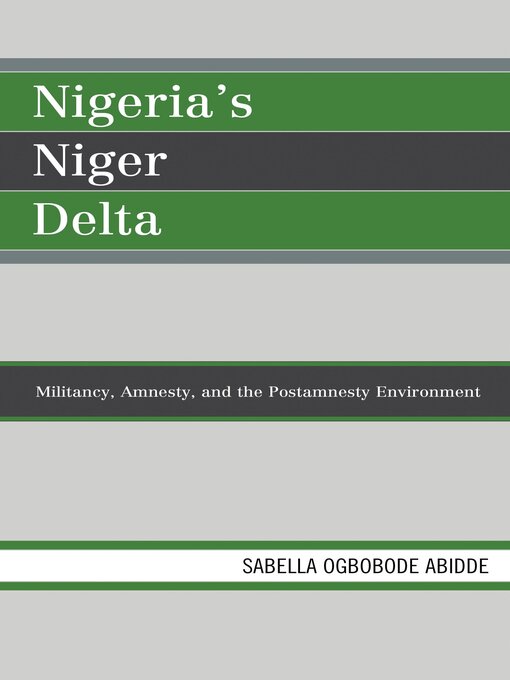- Available now
- New audiobook additions
- Most popular
- Try something different
- Audiobook titles
- See all audiobooks collections

These deficiencies led to high unemployment, social dislocations, youth restiveness, and extralegalities. It was these realities that bred disaffection with the government and the multinational oil companies and eventually, to violent militancy. Between 2003 and 2009, it also led to low intensity conflict between militant youths and the Nigerian government. In the summer of 2009, however, the Nigerian government extended an offer of presidential pardon (amnesty) to the militants. The amnesty program was intended to bring peace and quiet to the region. However, this has not been the case.
In spite of the financial and political resources that have been expended, the region continues on the path of volatility. This book looks at the issue of nationhood, the cause and cost of the crisis, past approaches and current efforts at solving the crisis. In addition, it offers a tenable solution to the decades-old crisis. Furthermore, the case is made that unless there is a fundamental restructuring of the Nigerian state and its governing structure and institutions, the problems of the region—and the larger problems that makes the country such a difficult to place to live in and govern, is likely to continue.
-
Creators
-
Series
-
Publisher
-
Release date
January 31, 2017 -
Formats
-
Kindle Book
-
OverDrive Read
- ISBN: 9781498542944
- File size: 1810 KB
-
-
Languages
- English
Why is availability limited?
×Availability can change throughout the month based on the library's budget. You can still place a hold on the title, and your hold will be automatically filled as soon as the title is available again.
The Kindle Book format for this title is not supported on:
×Read-along ebook
×The OverDrive Read format of this ebook has professional narration that plays while you read in your browser. Learn more here.